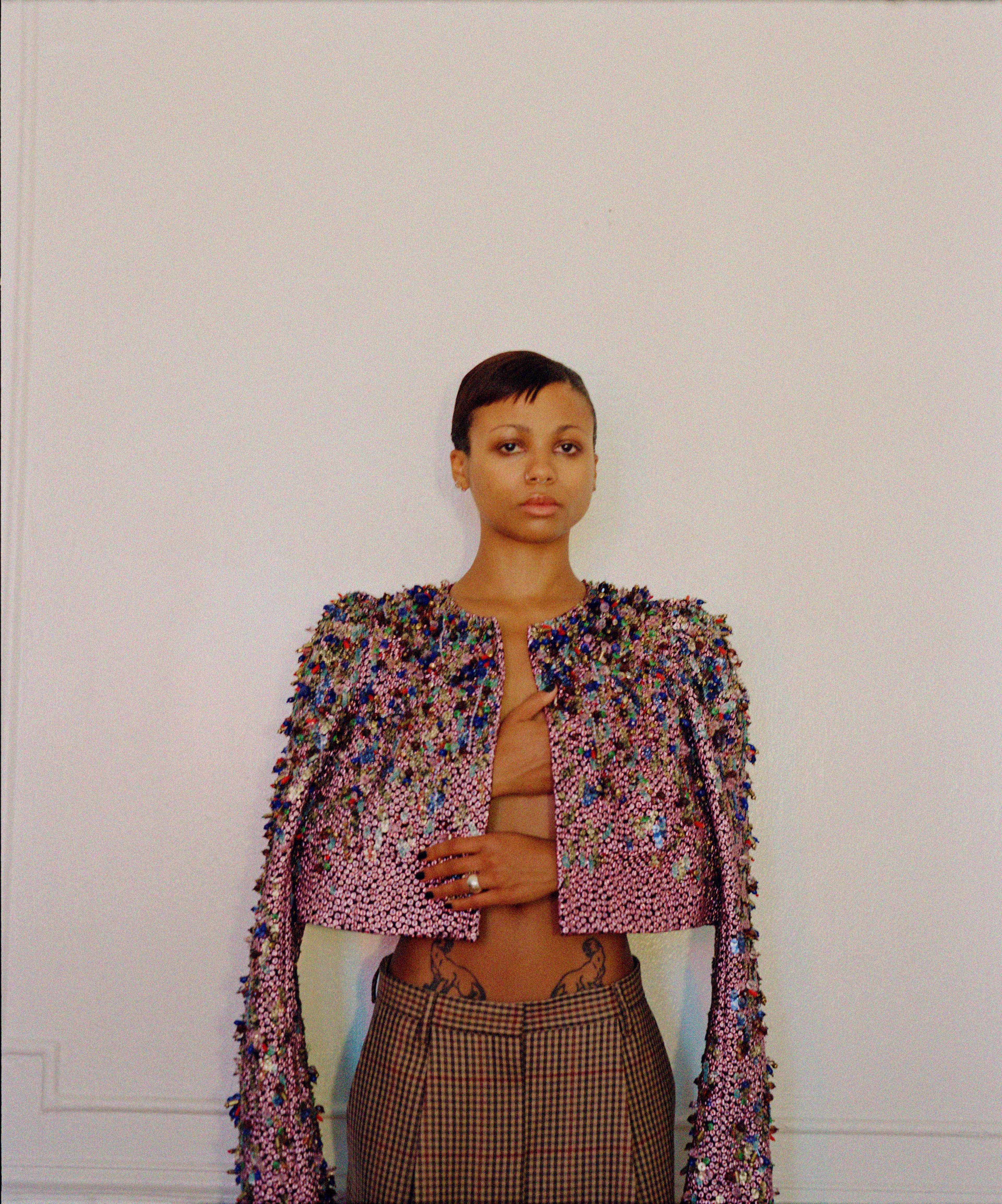
JACKET and PANTS by Dries Van Noten. RING on right hand by Nicole Rose Jewelry. EARRINGS and RING on left hand, Myha’la’s own.
Myha’la Knows What She Wants
This summer, I spent a little under an hour with the New York-based actor Myha’la one sweltering afternoon in Brooklyn. Since then, the same word keeps coming to mind: conviction. A sheer confidence in her abilities and a powerful desire to make something of them. Day of, we meet at a sunny cafe at the peak of summer, arriving in the bright, air conditioned shop at almost exactly the same time. I am sweating from my walk over when we say hello. Myha’la appears cool and well put together. She is very petite, with an open demeanor and an easy smile, wearing a floppy straw hat, a gray tank with an embroidered teddy bear on the front, dark-wash denim and a pair of low-heeled white Repettos. Her skin is fresh and clean behind her trim eyeglasses, and she’s eyeing the pastries behind the counter. “By all means,” she says to me, nodding at them. “I’m gluten free, so…” But she chats with the staff, asking questions. Together they decide her order: a sparkling yuzu iced tea and the tea cake—it is gluten free.
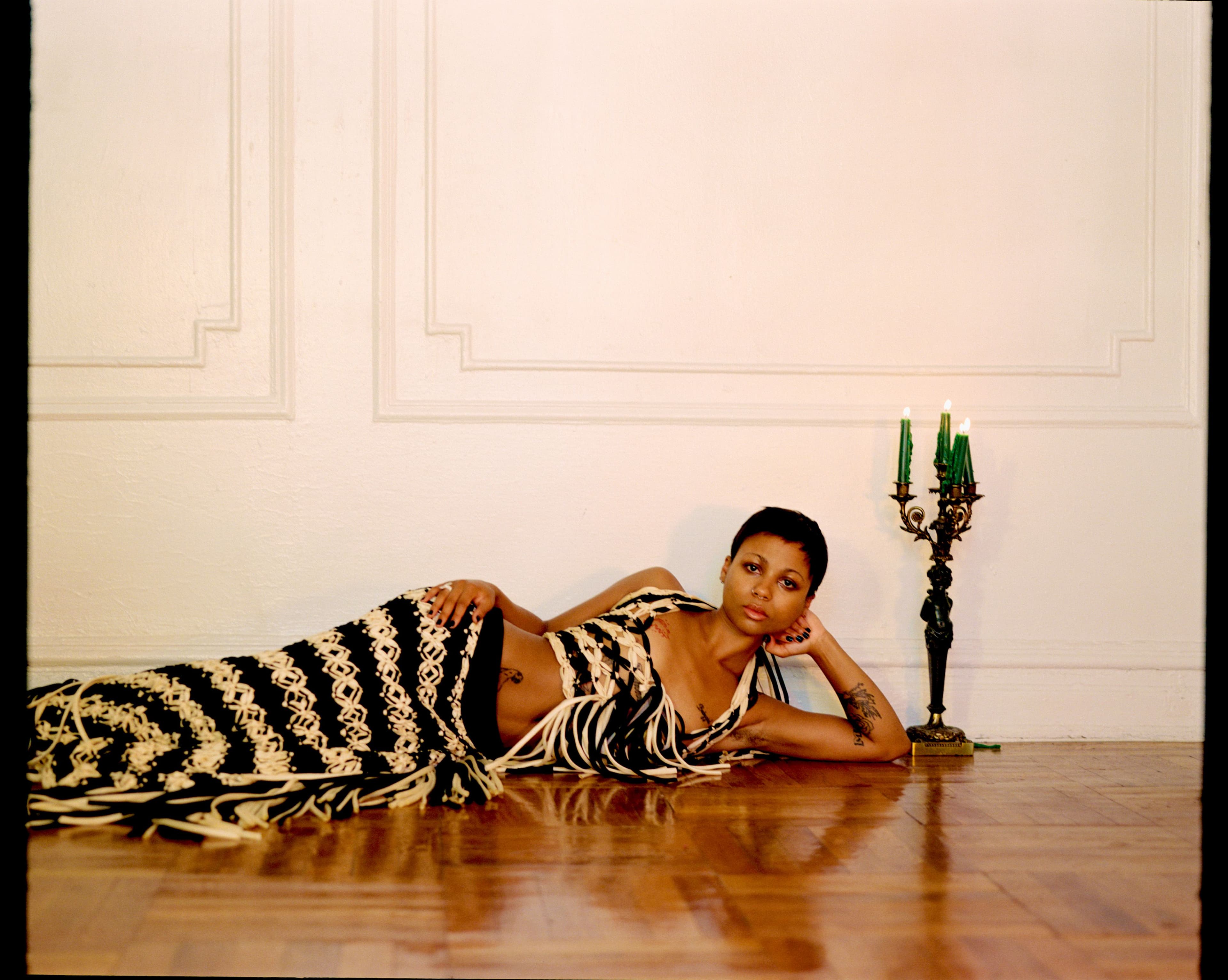
All CLOTHING by Diotima. RING by Nicole Rose Jewelry.
We sit down by a window. Myha’la is not shy. She seems instantly comfortable and ready to talk. She does not seem guarded from what I can tell, unlike most typical press-trained interviewees. “My fiancé and I stayed up late last night,” she says. “Like stupid late. We were like, ‘This is going to be terrible in the morning.’ I’m very grateful for this coffee cake.” She’s newly engaged to the actor Armando Rivera; it’s been just two weeks since they exchanged rings in their living room. “He’s fully my biggest fan,” she says after relaying the story of how they met (by DM request). She says they do everything together. “It’s so funny, [other actors] are like, ‘I’ll never date an actor.’ And I’m like, ‘Well I’ll never date an accountant,’” she laughs. “I’ll never date anybody with a regular desk job,” she says, between sips of yuzu tea. “Couldn’t be me.”
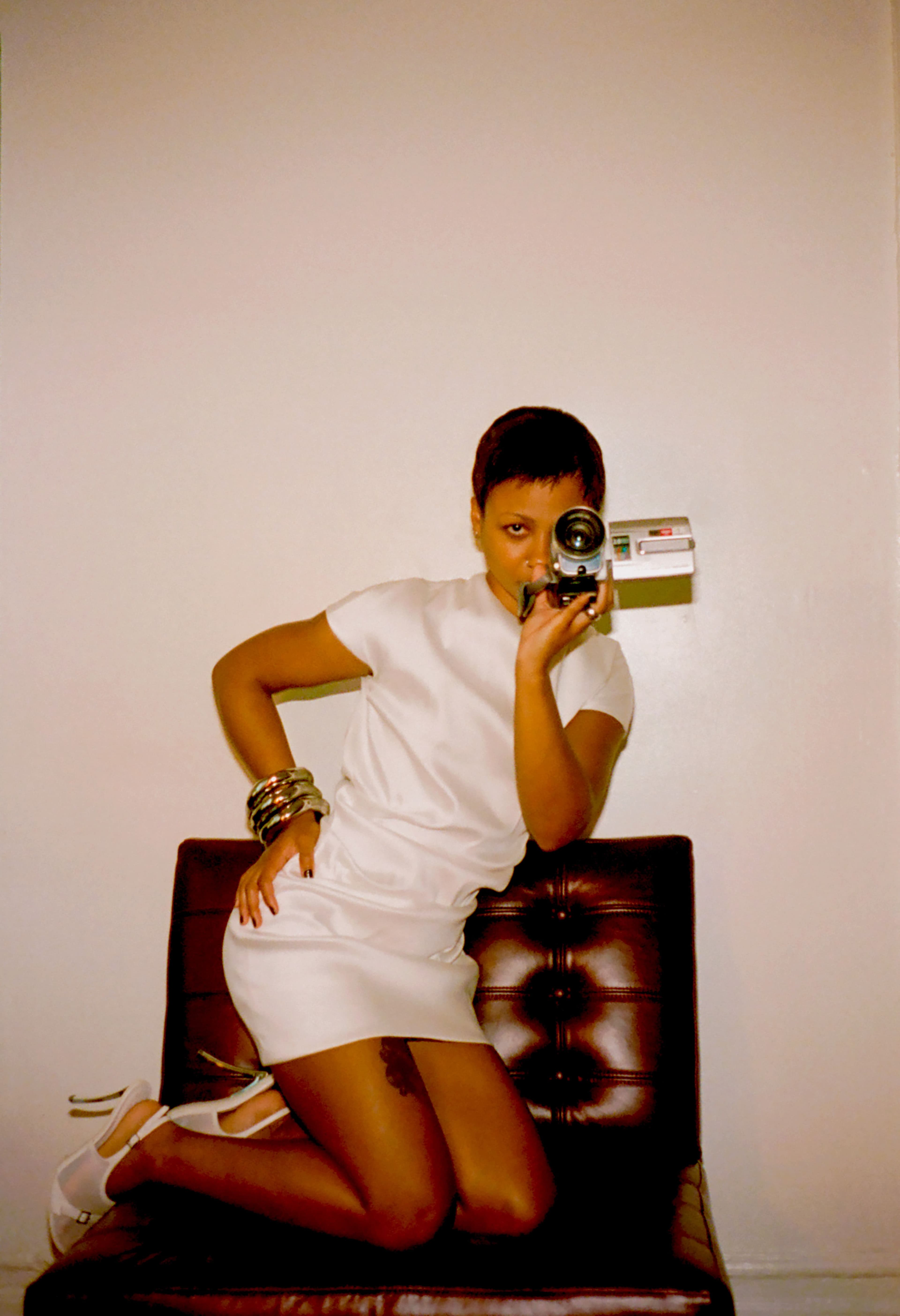
DRESS and SHOES by Acne Studios. BANGLES by Alexis Bittar. EARRINGS and RING, Myha’la’s own.
In contrast is Myha’la’s current role as Harper Stern in Mickey Down and Konrad Kay’s HBO drama series, Industry. The show, returning now with its third season, highlights a very different kind of industry from Myha’la’s own. It centers around a London-based set of characters whose collective ambition is career success in the investment banking sector at any cost. Harper is one of them, a New York-native transplant working her way up this corporate ladder. Myha’la and her co-stars, Harry Lawtey and Marisa Abela, are a close knit group of rising stars. “After the second season, all of us did some crazy shit,” Myha’la recalls. “Harry’s in the Joker and Reese played Amy [in Back to Black]. I did a film with fucking Julia Roberts. We all had opportunities to step up in a really big way.” Coming back to the show after so much time—it’s been two years since season two wrapped and it was two years before that since season one ended—feels, she says, like coming home. “This is a safe, familiar place with people we love and respect, on a job that we understand. We’ve gone away and done other work, met new people, and adjusted and grown up. It’s very, very comforting. Now I’m like, let me see what else I can bring [to the show].”
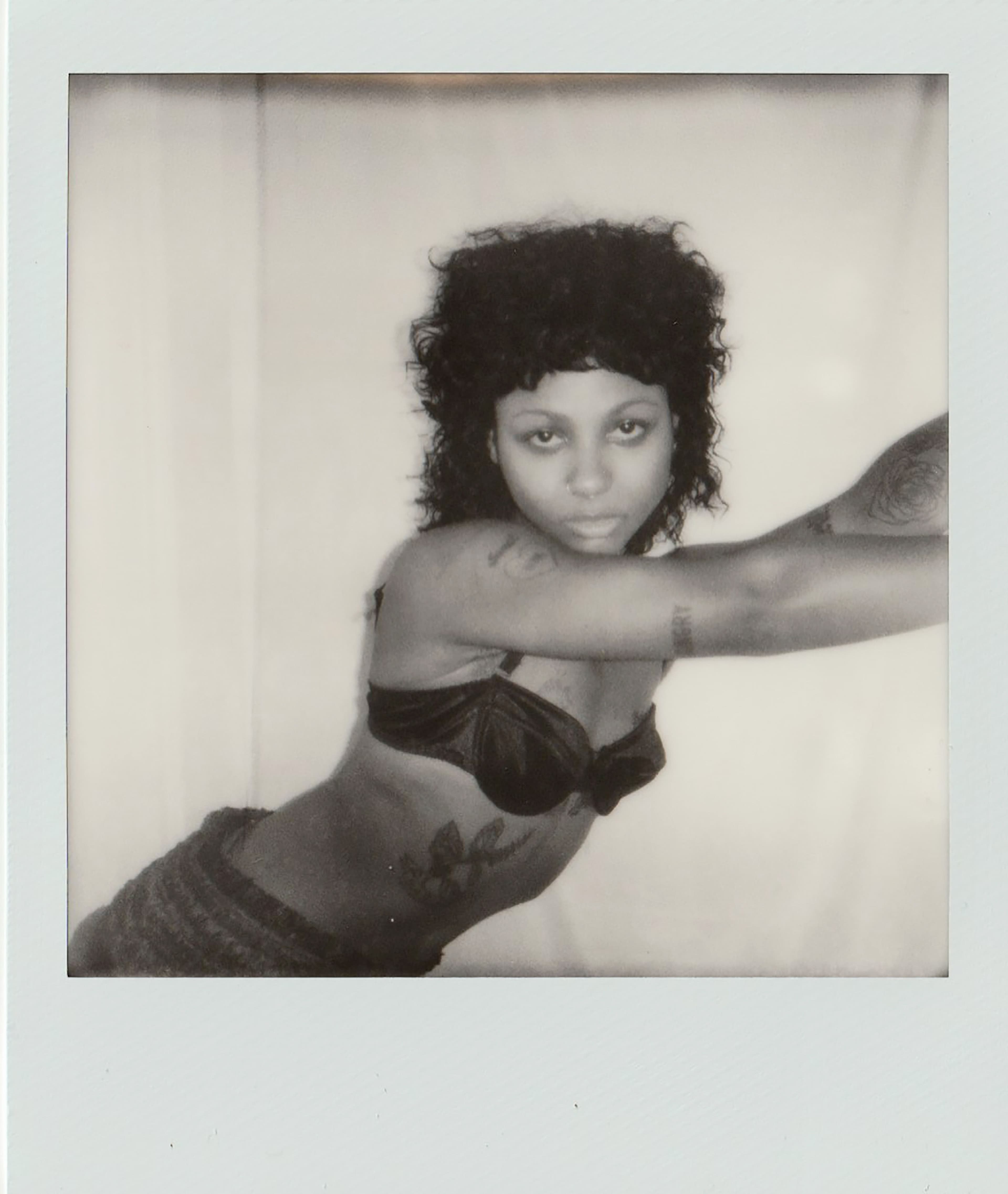
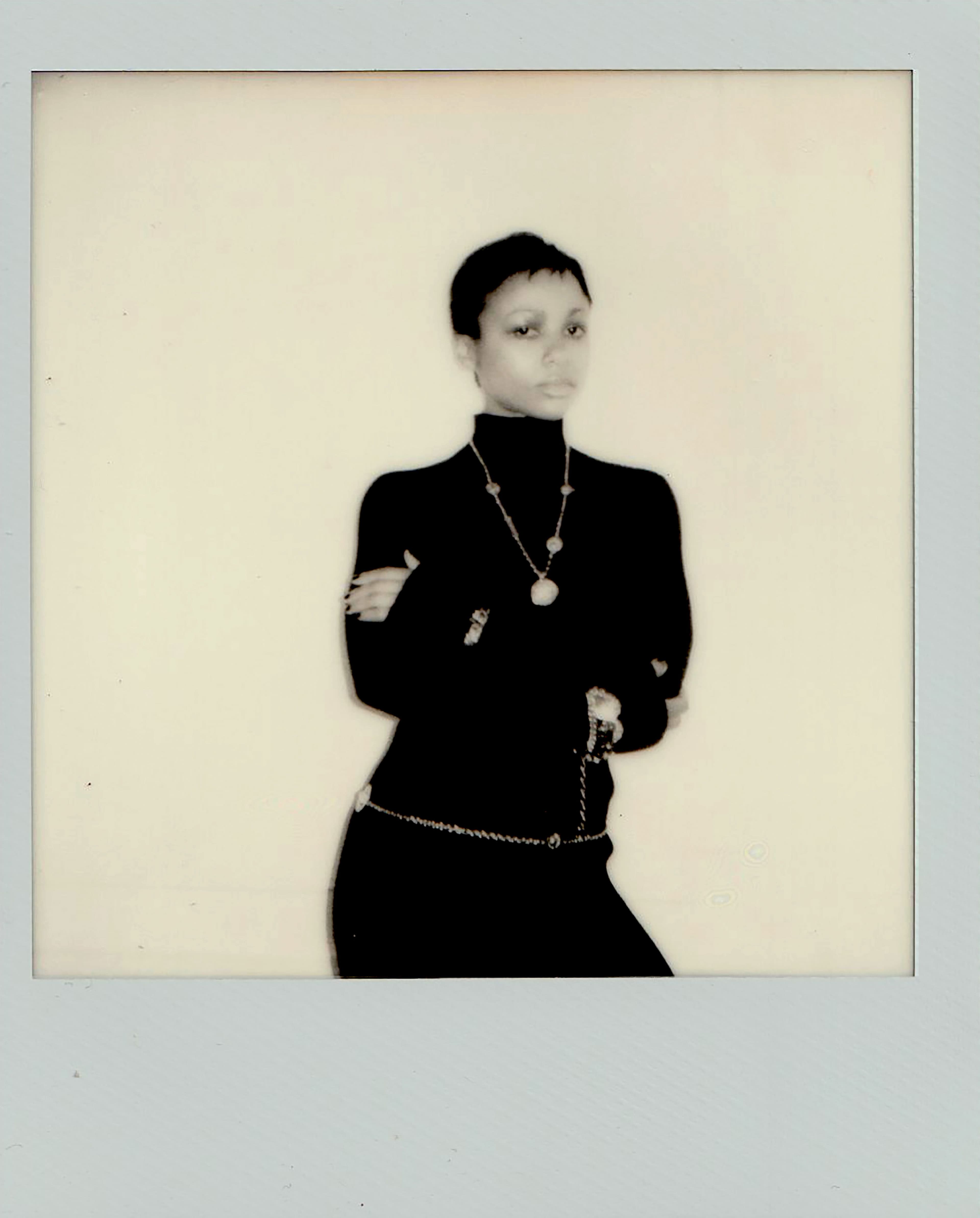
DRESS and CHAINS by Chanel. EARRINGS and RING, Myha’la’s own.
Last year, Myha’la appeared alongside Roberts, Maharshala Ali, Ethan Hawke, and Kevin Bacon in Sam Esmail’s psychological thriller Leave the World Behind, based on the novel by Rumaan Alam. It is an apocalyptic tale about a family vacationing on Long Island as a cyber collapse begins to destroy the world as they know it. The year prior, Myha’la starred in the A24 horror comedy Bodies Bodies Bodies, a project she describes as incredible, great, amazing. “When we were shooting it, I mean, we knew it would be funny. But watching the final edit I was like, ‘Oh, this shit is funny,’” she laughs. “It just goes to show how much the edit, the music and color, and all of that influences genre or performance. Once my part’s done, I have no control or say in how it turns out at all.”
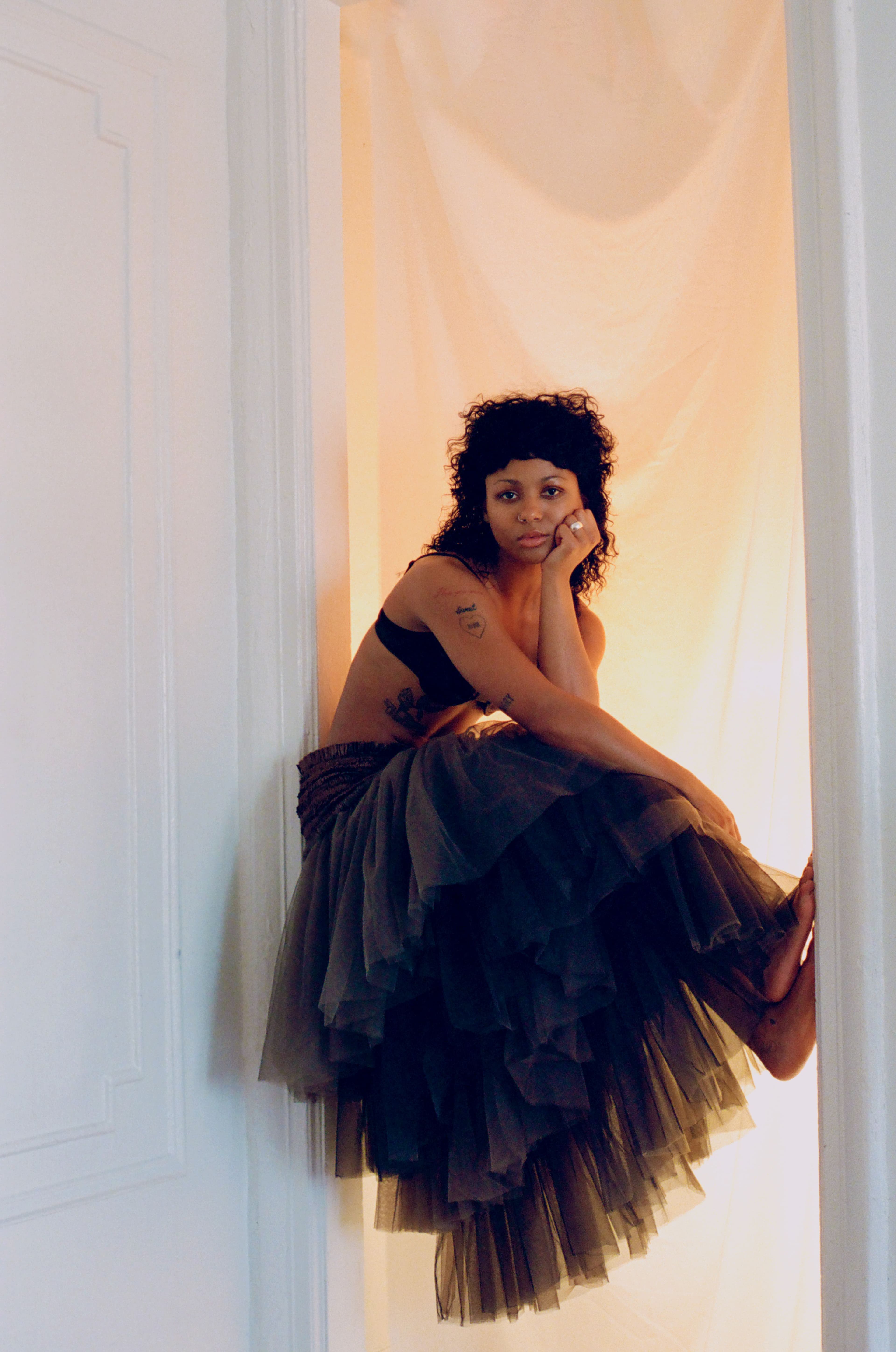
Myha’la’s desire to act began in the very beginning. “I’ve had one interest my entire life,” she says. According to her mom, it started in the womb: “When my mom was four or five months pregnant with me, she went to see a production of Once on This Island,” Myha’la recalls. “She sat down and as soon as the music started I was kicking like crazy and I was kicking the whole time. She was like, ‘She’s going to come out of here kicking and screaming and dancing.’” Growing up, it was just the two of them—Myha’la says they are best friends, and that her mom, a hairdresser, recently moved from their hometown of San Jose, California, to New York to be closer to her daughter. “My ultimate goal is to take care of her,” Myha’la tells me. “Got to get this coin right.”
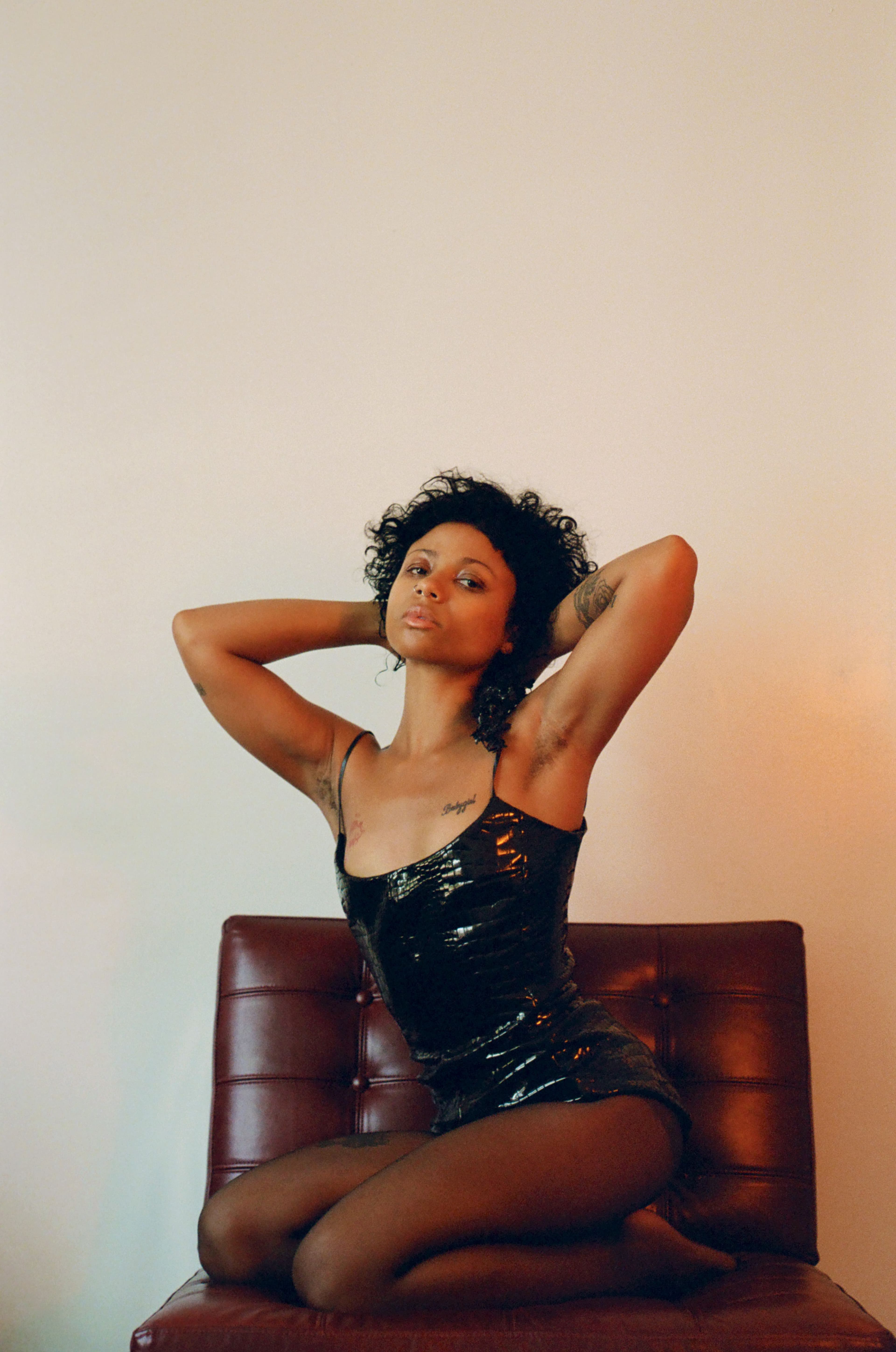
BODYSUIT by Tory Burch. TIGHTS by Wolford. ALL JEWELRY, Myha’la’s own.
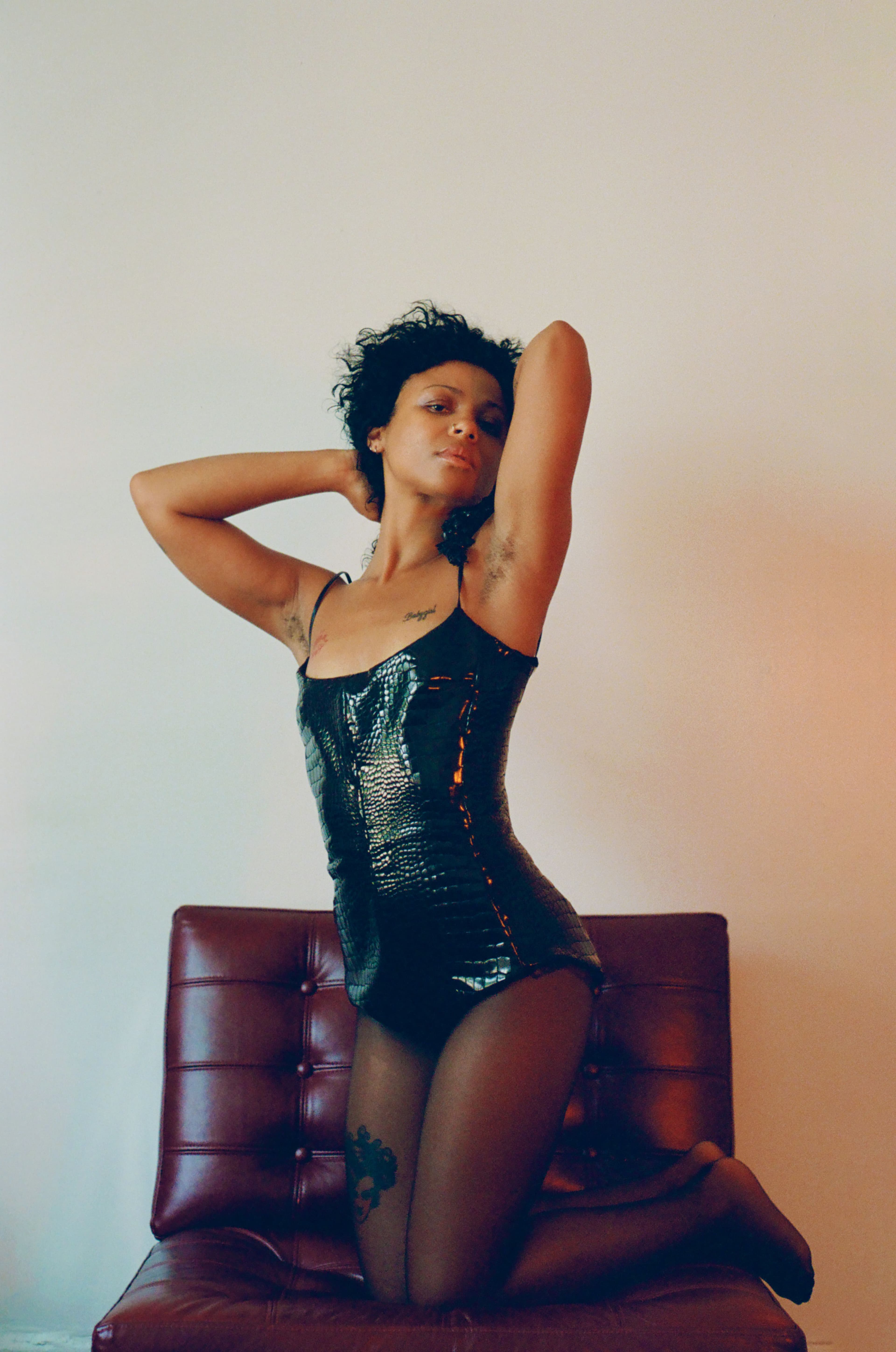
BODYSUIT by Tory Burch. TIGHTS by Wolford. ALL JEWELRY, Myha’la’s own.
When Myha’la was still in school at Carnegie Mellon in Pittsburgh studying musical theater, she landed what she recalls as the most glamorous summer gig as Nabulungi in a Broadway national tour of The Book of Mormon. She left for four months and came back to finish school at the start of the fall semester back in 2017. The play had been running for a number of years already, and in the time that has passed even since she was in the play, a lot has changed across the American political climate. “That show is really giving mid-2000s,” she nods. “Everything is up for grabs. Anyone can be made fun of. And I think that now people are like, ‘You can’t say, “Fuck you, God,” in that way like that.’ And, ‘You can’t make fun of Africans like that.’ So much has happened since then.”
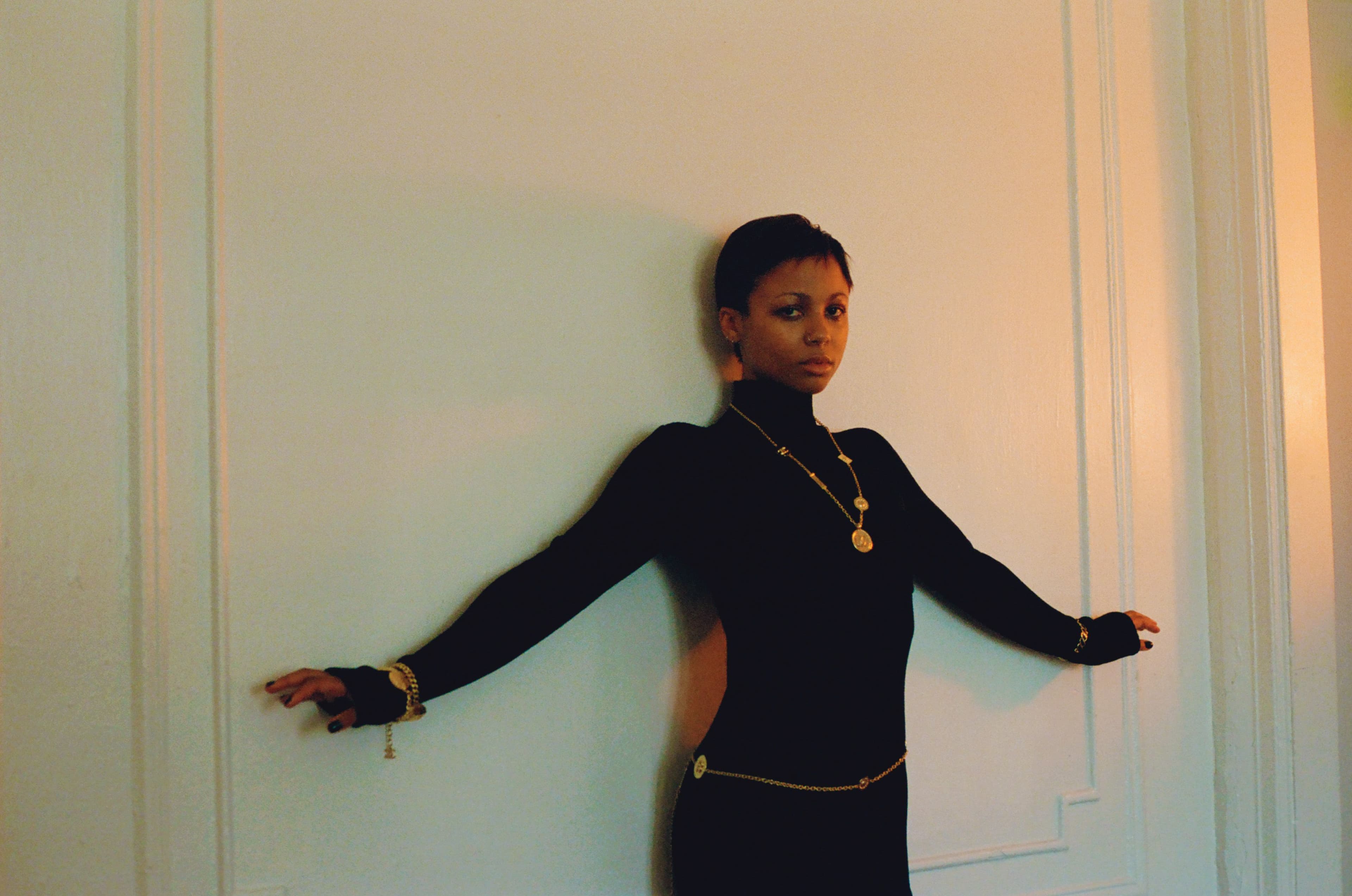
DRESS and CHAINS by Chanel. EARRINGS and RING, Myha’la’s own.
In her time since The Book of Mormon, Myha’la finished school, moved to New York City, and has been relentlessly focused on work since then, pursuing the one thing she’s always known she wanted. When asked whether she has a creative process, she says no—but also, “if I did I wouldn’t feel comfortable sharing it anyway.” To her, it’s personal. “The point is that I did it,” she says. “The point is that I got here.” But at the very least, it’s also simple: she does the work. “I read my script and I learn my lines and I show up—is really it in a nutshell.”
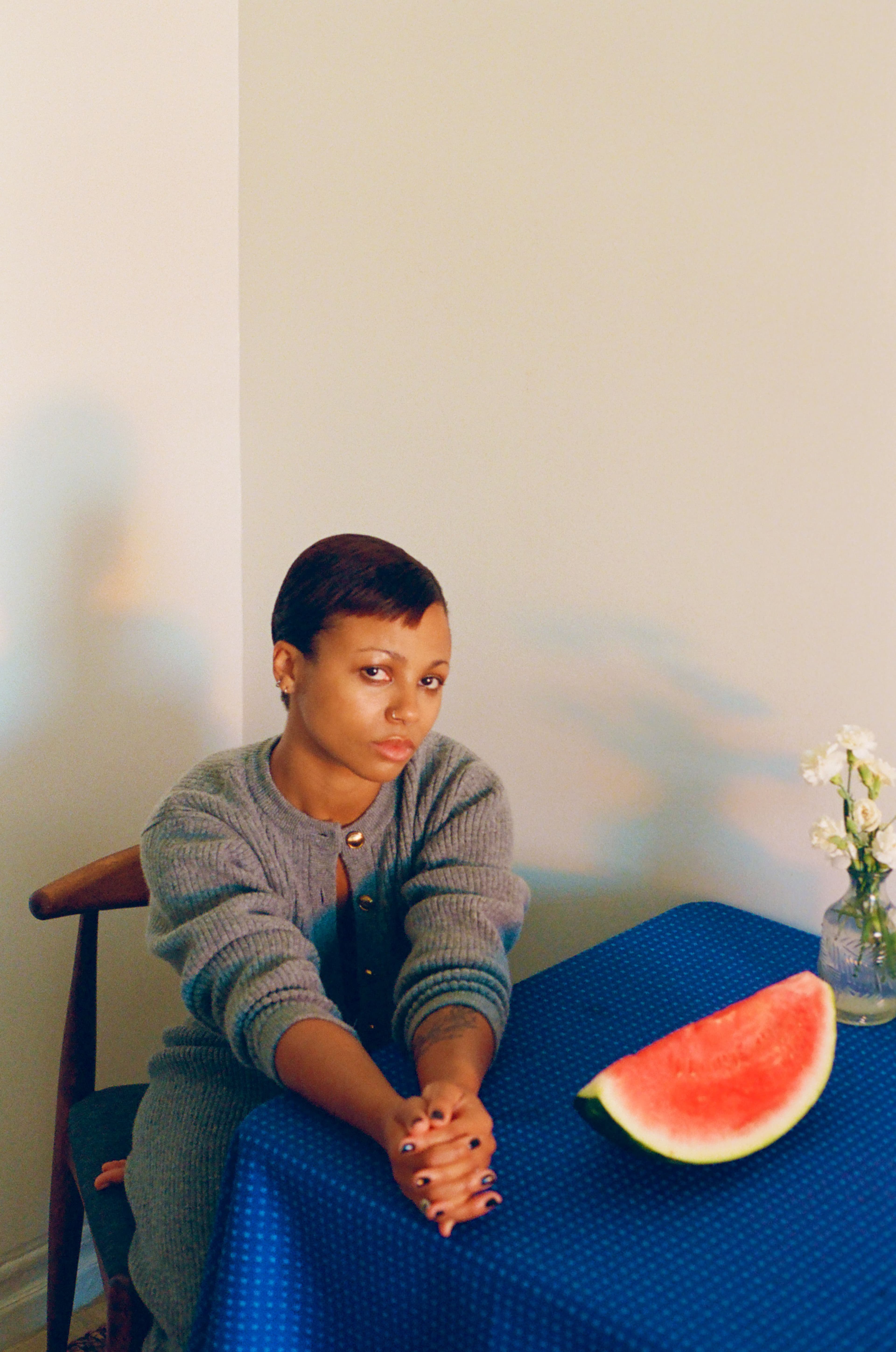
JUMPSUIT by Chloé. EARRINGS and RING, Myha’la’s own.
As a nonprofit arts and culture publication dedicated to educating, inspiring, and uplifting creatives, Cero Magazine depends on your donations to create stories like these. Please support our work here.






